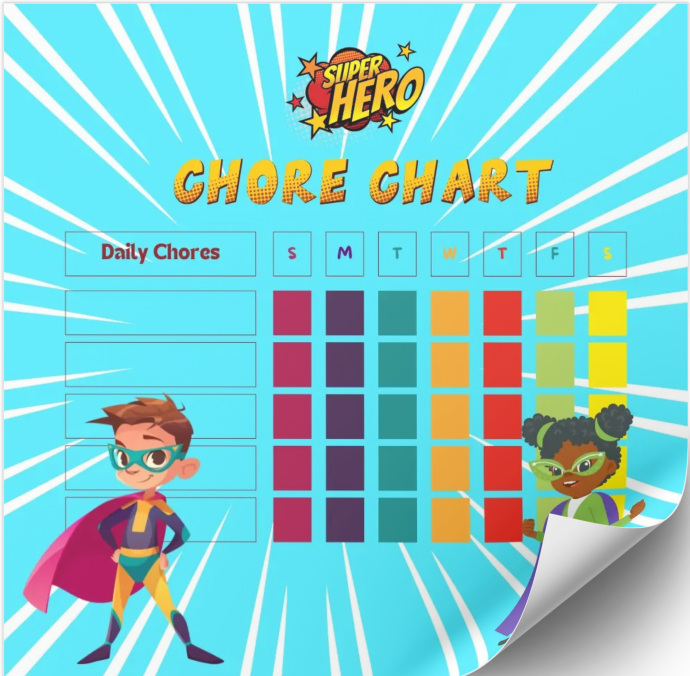Nurturing tomorrow's heroes Today!
Character Chronicles
Obedience
Index
Introduction
Obedience is often misunderstood, but in this guide, we’ll unpack its meaning and show you how it can be a powerful tool in shaping your child’s character and faith.
To begin, let’s clarify what we mean by obedience. It’s not just about blindly following rules; it’s about willingly respecting and complying with authority and values.
Obedience lays the foundation for discipline and self-control, vital skills in your child’s development.


Obedience Begins at Home
At home, obedience is where it all begins. As parents, it’s our role to establish clear rules and expectations.
These rules aren’t arbitrary; they’re grounded in values such as respect, kindness, and responsibility.
Your children will understand that following these rules creates a harmonious family environment, especially if you effectively communicate that these boundaries and rules are not set out of spite or to establish a dictatorship.
To help them put things into perspective, you can explain how the house or daily routines would be affected if you ceased your obedience in responsibilities such as cooking, grocery shopping, and other tasks that directly benefit them.
Remember, the key is to adapt the level of autonomy to their age and maturity while maintaining a clear understanding that some rules and values are non-negotiable. By striking this balance, you’re helping your child develop into a responsible, independent, and obedient individual.
Obedience in School
Obedience also plays a pivotal role in your child’s education!
Following instructions is essential for learning and social development. Obedient students usually excel academically and contribute positively to the classroom.
Although very beneficial, the most significant factor of obedience in school and the direct impact it has on their outcome is directly linked to their relationships with classmates and teachers, and how well they are liked. Their whole self-esteem and self-worth unfortunately get “shaped” by how well they “fit in” and what others think about them.
We all know that trauma and bullying in school have a massive impact on what type of adult your child will become, how much money they will make, how successful their marriages will be – the list goes on and on.
It is our responsibility as parents and caregivers to instil these values in the ones we love. We do it out of love.
Proverbs 3:12 (NIV): “because the LORD disciplines those he loves, as a father the son he delights in.”
What Obebience is NOT...
Obedience vs. Blind Compliance
Dispelling the misconception that obedience means blind compliance is vital. Encourage your children to ask questions, seek understanding, and express their thoughts.
We want our children to obey thoughtfully, not out of fear, as many many people out there may take advantage of this complaint that could potentially have devastating effects on them and their safety.
Balancing Obedience and Autonomy
While obedience is essential, it’s equally important to grant your children age-appropriate autonomy. This helps them develop decision-making skills and a sense of responsibility.

Obedience to God
The obedience nurtured at home often paves the way for a smoother transition to obedience in a religious context.
As children become older they will realize that their faith encompasses more than just rituals; it’s about leading a life in alignment with wholesome values and guidelines.
We as adults know that adhering to God’s commandments is fundamental to living a virtuous and fulfilling life!
These values create a ripple effect that will influence everyone your child interacts with throughout their lifetime, as well as all of their decisions and actions.
Something to ponder about: What kind of son, daughter, husband, wife, parent, etc., will your child become? More significantly, who do you aspire for them to be?


Teaching Obedience with Care
Now, let’s explore how to teach obedience effectively. Love is the key ingredient. Striking a balance between setting clear boundaries and offering support and understanding is crucial.
(Explain the reasons behind rules so your children understand their importance.)
Ages 6-8:
At this stage, children are learning to comprehend the concept of responsibility. While they should continue to obey rules and guidelines set by parents, it’s also an ideal time to introduce limited autonomy in their decision-making.
Routine Discussions: Engage your child in discussions about daily routines. Explain the importance of routines in maintaining order and responsibility. Encourage them to help plan aspects of their daily routine, such as bedtime schedules or morning routines.
Responsibility Chart: Create a simple responsibility/chore chart together. Include tasks like making the bed, putting away toys, or feeding a pet. Let your child choose the stickers or rewards they receive for completing tasks. (within Limits of course).
Decision-Making Games: Play decision-making games where they get to choose between two acceptable options. For example, ask them to decide what vegetable to have with dinner or which book to read before bedtime.
Ages 9-10:
As children approach the pre-adolescent stage, they become more capable of handling increased autonomy.
Set and Discuss Goals: Help your child set personal goals, whether they’re related to academics, hobbies, or chores. Discuss the steps needed to achieve these goals and the importance of discipline and obedience in reaching them.
Weekly Planning: Involve your child in weekly planning sessions together; plan meals for the week, create a schedule for homework, and allocate time for extracurricular activities. This exercise teaches them time management and responsibility.
Problem-Solving Scenarios: Present them with age-appropriate scenarios where they need to make responsible decisions. Discuss potential outcomes and consequences, helping them understand the importance of making obedient and thoughtful choices.
Ages 11-12:
By ages 11-12, children are on the brink of adolescence and can handle more significant responsibilities.
Family Discussions: Hold family meetings to discuss important matters or rule changes. Encourage your child to voice their opinions and concerns, fostering a sense of responsibility in being part of the family decision-making process.
Journaling: Introduce the concept of journaling. Your child can keep a journal where they track their feelings and moods, and reflect on their responsibilities or set personal goals for improvement. I have a free downloadable 21-day Interactive Journal if you would like to download it and have them try it out. Download it here for girls & here for boys.
Role-Playing: Engage in role-playing scenarios where they play different roles, like the role of a parent or authority figure. This exercise helps them empathize with the challenges of making decisions and enforcing rules while fostering a sense of obedience and respect.
These conversations, not only empower them but also foster a deeper sense of responsibility, critical thinking and a feeling of being valued in the family.

Conclusion
In conclusion, obedience isn’t just about following rules; it’s a journey of character development and faith formation.
By teaching obedience with love, respect, and understanding, you equip your children with invaluable life skills and a strong moral compass.
As parents and caregivers, we know what our children need and where they need to learn and strengthen skills, values, direction etc.
How many times have you wished that your parents actually had an interest in developing your skills, helping you figure out your strengths, weaknesses, interests etc..
Where would you possibly have been if they had?
Moreover what type of relationship would you have had with them if they did show more interest? If you are one of the very few who has had that, thank God every day for your blessings!
This is a journey worth embarking on together, as every child deserves it! Let’s do better than the generations before us, and the ones before them!
Complimentary Corner
Free Reward Coupons & A Superhero Chore Chart
To support you in this important endeavour, I´d like to introduce you to 2 valuable resources:
The Reward Coupons offer a fun and rewarding way to acknowledge and incentivize obedience, while the Chore Chart provides a structured framework for kids to take ownership of their tasks and responsibilities.
Remember: that teaching obedience and responsibility should be holistic (taking into account mental and social factors) and be an enjoyable experience!
These downloadables are designed to make the journey more engaging for both you and your child.
Fuel Your Faith! Join Our Heroic Email List
Unlock Daily Challenges, Hero Training & Faith-Filled Inspiration!




